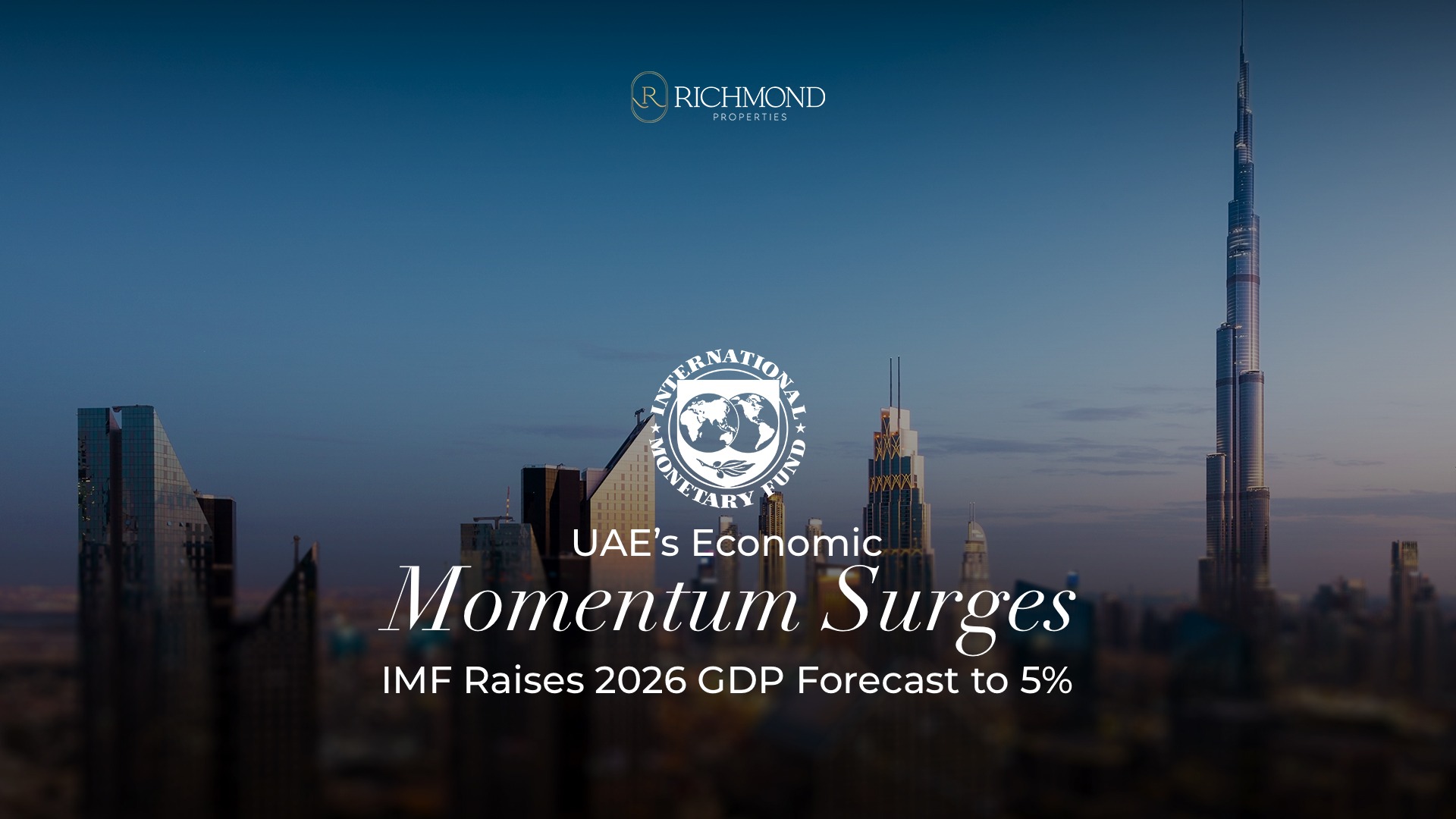The UAE’s economic trajectory is shifting into higher gear. The International Monetary Fund (IMF) has just upgraded its projections for the Emirates, forecasting a remarkable 5% GDP growth in 2026, up from earlier expectations.
This is not just a number; it’s a statement that the UAE is solidifying its position as a resilient, diversified, and forward-looking economy, outpacing regional and global peers alike.
The IMF’s latest report highlights the UAE’s robust recovery and expansion, underpinned by strategic investments, thriving non-oil sectors, and a policy environment that balances growth with stability.
For 2025, the Fund expects the UAE’s economy to grow by 4.8%, already a substantial jump from previous estimates. By 2026, that momentum accelerates, signaling a confident trajectory that reflects both long-term planning and short-term adaptability.
At the heart of this growth is the UAE’s non-oil economy. Tourism, real estate, finance, and trade are no longer supporting actors; they are driving the main act. Dubai’s skyscrapers and Abu Dhabi’s business hubs are more than architectural marvels; they are tangible evidence of strategic economic planning translating into real-world performance.
The nation’s focus on innovation, technology, and foreign investment is paying off, creating an ecosystem where capital flows, talent thrives, and sectors complement each other seamlessly.
The real estate market, long a barometer of the UAE’s economic pulse, continues to reflect this strength. Luxury and secondary market properties are seeing heightened demand, while urban regeneration projects and large-scale developments attract both domestic and international investors.
Similarly, tourism is staging a steady resurgence, bolstered by major events, global exhibitions, and the UAE’s positioning as a hub for business and leisure alike.
Financial services and technology have emerged as pillars of resilience. The UAE’s regulatory frameworks, free zones, and investor-friendly policies are creating a fertile environment for startups, fintech innovations, and global enterprises.
These sectors not only contribute to GDP growth but also signal a structural shift: the UAE is no longer an economy driven primarily by hydrocarbons.
While the UAE’s economic performance is the highlight, it’s worth noting that the region as a whole is experiencing notable trends. Saudi Arabia, for example, has seen its inflation rate decline to 5.5%, reflecting stabilizing domestic conditions.
However, the Emirates’ growth story remains the standout, with the IMF placing the UAE at the forefront of the Gulf’s economic resurgence.
The IMF’s projections are more than optimistic numbers; they are a validation of the UAE’s strategic vision. Economic diversification, infrastructure investment, and a forward-looking policy framework have collectively built resilience against global uncertainties.
The Emirates are not just keeping pace; they are setting the pace, signaling to investors and global partners that the UAE is ready for the next phase of growth.
Beyond GDP numbers, the UAE’s economic performance represents broader social and developmental gains. Employment opportunities are increasing, technological adoption is accelerating, and the nation’s global competitiveness is strengthening. These gains position the UAE not only as a regional powerhouse but also as a magnet for international business and talent.
In a world where economic stability can feel fragile, the UAE’s forecasted 5% growth in 2026 is a clear message: the Emirates are not just weathering global shifts; they are steering the course. From Dubai’s skyline to Abu Dhabi’s financial hubs, from bustling tourism districts to innovative tech zones, the country’s growth is tangible, measurable, and sustainable.
For investors, businesses, and residents, these numbers confirm what many have sensed on the ground: the UAE is a land of opportunity, ambition, and resilience. The IMF’s upgrade is both a recognition of past efforts and a signal for what lies ahead.
With strong economic fundamentals and a commitment to innovation, the UAE is positioned to continue its upward trajectory, transforming challenges into opportunities and visions into reality.
In short, the UAE is not just growing; it’s accelerating. And 2026 is shaping up to be a year when ambition meets delivery, and the Emirates reaffirm their place as a global economic leader.

